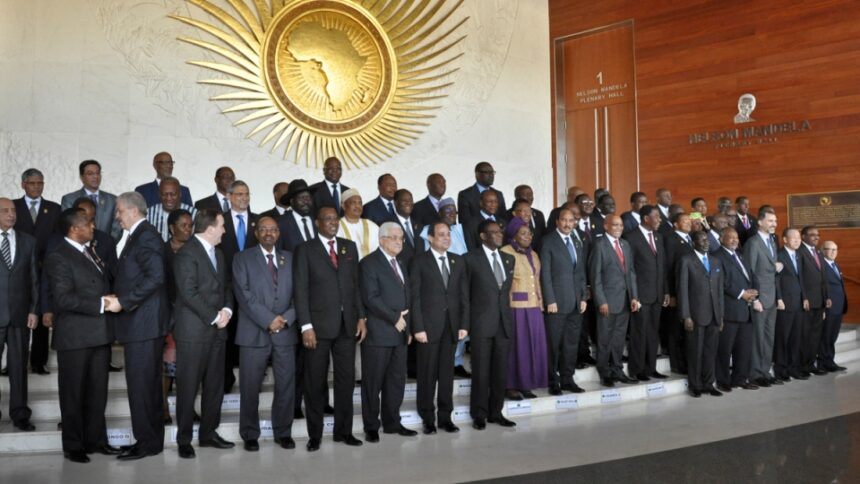 When trying to sum up what has happened in Africa over the years, the World Bank used the term “Crisis in governance”. Since then, governance as a word has been widely used in political development studies especially for describing the political status of post-colonial and developing countries.
When trying to sum up what has happened in Africa over the years, the World Bank used the term “Crisis in governance”. Since then, governance as a word has been widely used in political development studies especially for describing the political status of post-colonial and developing countries.
[ads1]Many scholars from various countries have come up with major propositions on governance as the theory. All countries, whether developed or developing, are searching for a new form of governance that is better adapted to the times so as to gain an advantage in economic competitiveness and create substantial and sustainable social growth.
One of the most compelling features of the post-colonial economic history of Sierra Leone is the prevalence of bad governance leading to bad infrastructure and extreme poverty. The country has received billions of dollars from donor organizations and the UN to reduce poverty and enhance development, but the more money they inject into the country’s coffers the poorer the of Sierra Leone become and the richer the officials become. This has been the phenomenon for decades because a huge portion of the money is spent on the technical and international staffs, corrupt officials and the rest is spent on projects that have no value to the country. Since independence we have been receiving financial assistance, the success within has been scattered slow, especially given the optimism that was so prevalent before independence.
Today, an average Sierra Leonean cannot afford a dollar (Le3,000) for food a day, the members of Parliament have the guts to ask for whopping $4,000 (Le12million) monthly salary and a Le45 million 4×4 vehicle loan that they would never repay. Apart from the reasons enumerated in my last article, what accounts for the pattern of long-term failure in my opinion and corroborated by research findings by renowned scholars is the election of aged leaders. Shortcomings in the governance are the only explanation for the country’s failure to develop after many years of external assistance. Most developed nations have shifted away from that old phenomenon of electing “ancient” politicians as their leaders. The dynamics of the epoch including the fact that governance has become a convenient basket term for few core factors including government’s management of public funds, accountability and corruption, effective and fair application of the law, use of technology, quality of representative institutions these have necessitated the election of young and vibrant leaders in these advanced nations. Sierra Leone and many other African countries are weak in all of these areas because of this old prescription of electing aged leaders.
Performance of the Koroma, Helen Sirleaf, Nguema, Former President Mugabe governments among others in tackling corruption and socio-economic challenges of their countries, compared to the efforts of young leaders such as John Mahama of Ghana, Paul Kagame of Rwanda will give you the clear understanding of my assertion. The twenty-first annual edition of the Transparency International Corruption Perception Index 2015, ranked Sierra Leone 118 out of 168 countries worldwide, but with a much lower score of 29 over 100, compared to 2014 (31 over 100), 2013 (30 over 100), and 2012 ( 31 over 100). In just two years, per the latest report, corruption in Sierra Leone has gone up. The country just like other African countries is going through these challenges because of weak leadership.
Supporters of President Koroma ignorantly told us that more than $500 million was spent by President Koroma on infrastructure only to be told later by the auditor general’s report that 60% cannot be accounted for. In my last article, i invited them to join to Ghana and see for themselves real infrastructure development bequeathed to the people by their former leader John Mahama. The first time I visited Accra (Ghana) was in the early 80s when I travelled to the West African country to interview late Major Jumoh. When I attended a workshop in Accra on Ebola in 2015, I shed barrels of tears for my country. The young leader has transformed the country and you could feel more prospects looking at the massive development in the country. In Sierra Leone, only 12% of households have access to electricity, while more than 60% of households do not have access to a regular supply of clean drinking water. Corruption and weak leadership as result of aged leadership and application of outmoded concepts are responsible for the abject poverty and poor health that are killing the vast majority of children and adults in Africa. And it seems from the latest Transparency International report that there is no hope of an improvement if countries in Africa will still elect “retired” politicians to lead them.
According to Sierra Leone’s constitution, it is wrong for a President to appoint ministers who have contested and won seats in parliament, but who cares. Because of old age natural effects, our President mischievous characters around him alter provisions in our constitution to suit their own political purposes.
Sierra Leoneans will hold their Presidential, legislative and local government elections on March 7 and it will be the fourth elections since the end of the civil war in 2002. Out of the 16 candidates, only three stands any realistic chance of winning the election- Samura Kamara who is the favourite of Mr Koroma, Julius Maada Bio of the Sierra Leone People’s Party (SLPP). The former military leader who ruled the country for three months and Kandeh Yumkella a serious contender seeking to break the two-party hegemony. I have interviewed the two main contenders and they both seem to agree with my assertion that it time African countries start fishing for young leaders who have the physical and mental capacity to move their nations according to the current global pace. Both mentioned John Mahama, Kigame and the Botswanan leader as good examples on the continent. My prayer is that Sierra Leoneans elect a leader who can transform the country just like what John Mahama, Kigame and few others have done for their people.
Ernest Kamara
UNA-Canada – Edmonton








